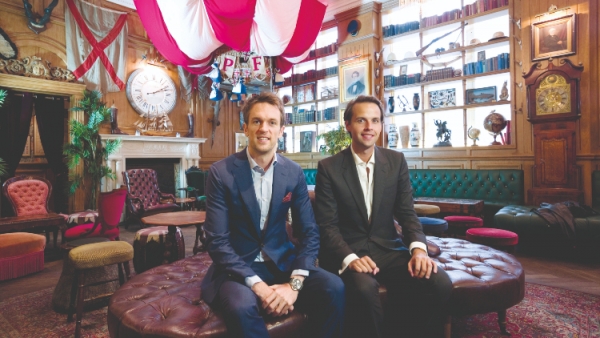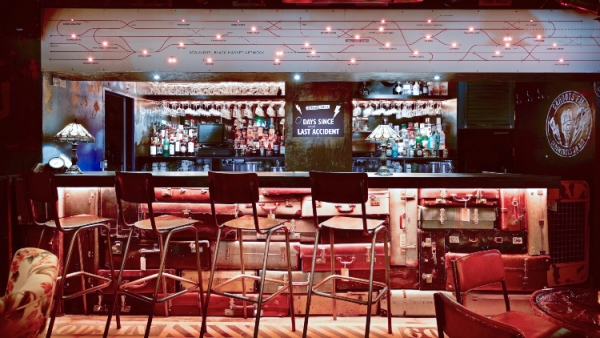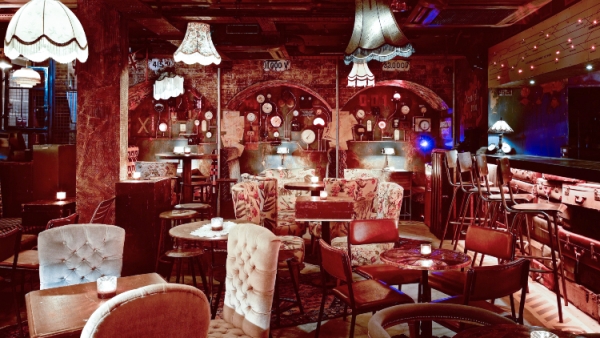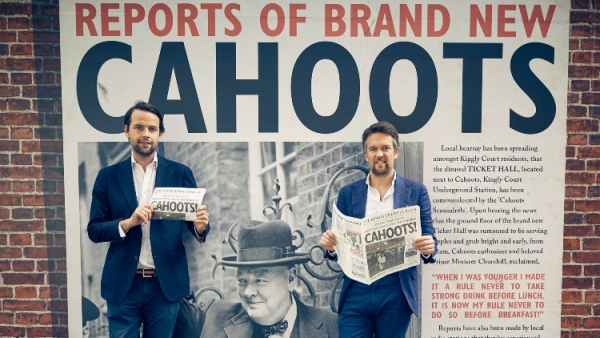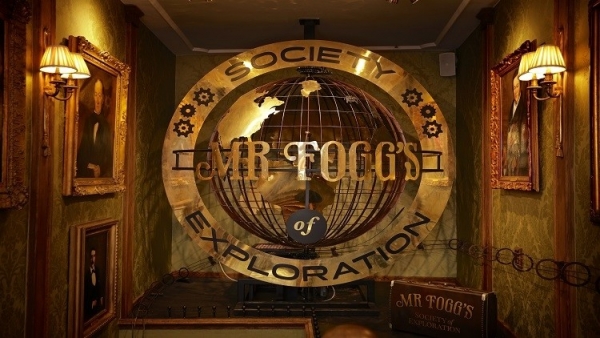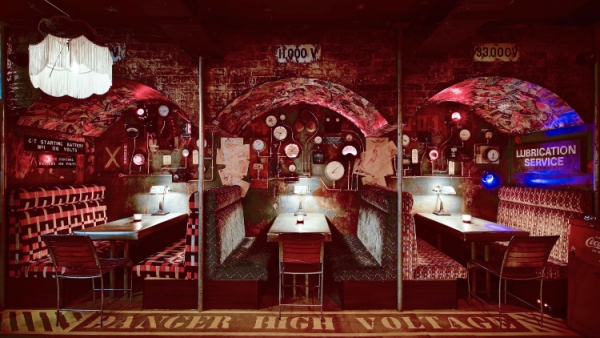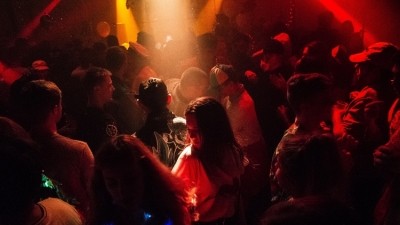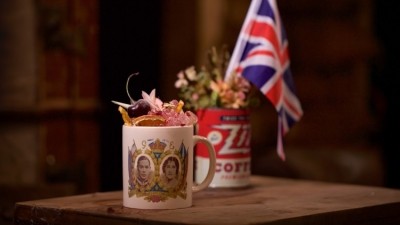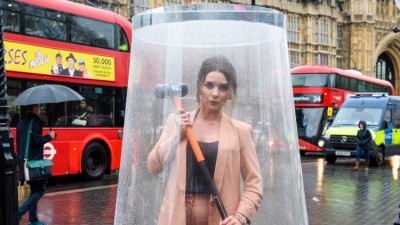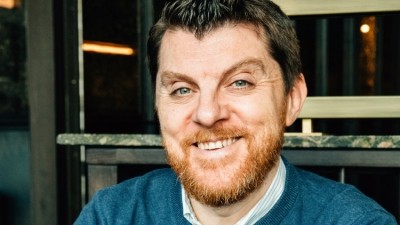Big interview
'Time capsule' concepts can help bring the pub into the 21st century
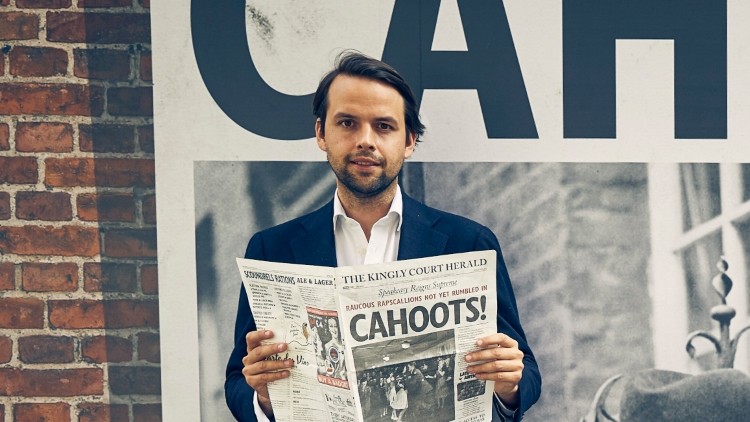
December 2020 marks a century since prohibition came into force in the US and inadvertently birthed the speakeasy. Given they’re still being riffed on by today’s hospitality players – including Charlie Gilkes and Duncan Stirling’s Inception Group – is it out of the question to ponder which contemporary quirks will style bars of the future?
“I’m sure in years to come people will pastiche the likes of Donald Trump – I could definitely see a ‘Trump’s’ opening somewhere,” Gilkes – whose 11-strong Inception Group portfolio includes a 1980s-themed night club named after Margaret Thatcher – laughs.
“I’m amazed how popular Maggie’s still is – we only play ’80s music, but I think the ’80s was such an amazing decade for it. I’m not sure whether it’s as distinct, but I can definitely see ’90s places coming along.
“The speakeasy has become a big thing and it will be interesting to see what we do now that will be replicated in years to come.”
The conception of Inception
After running and promoting club nights around London after leaving school, 24-year-old Gilkes teamed up with one-time rival Duncan Stirling to launch the Inception Group in 2009 – with the, now, double act initially paired by an admin error.
“There was a club where Duncan used to run the Thursday night and I used to run the Tuesday,” Gilkes remembers. “There was a week in the run-up to Christmas that we realised was going to be busy and both booked to also run the Wednesday – I’d booked it through the owner and he’d booked it through the manager. They realised they had double booked but rather than choose between us, they said ‘you two have got to do it together’. Duncan turned up with someone clicking people in, clicking people out, and was very practical, while I came up with a few different ideas for the night. We realised that having been rivals, we were a good partnership.”
While Gilkes was splitting his time between studying a master’s degree in politics at Edinburgh University and successfully hosting bigger and more frequent club nights in London with Stirling – the pair grew frustrated at the fact they were operating from other people’s venues.
Seeking something of their own, they came across a licensed basement space beneath a Sloane Square hotel that would become both their first managed venue, Kitts, and a steep learning curve.
“We approached them and asked what they were doing with the hotel to which they said ‘we’re in the business of sleep, we’re not interested in leasing it to you’, Gilkes says. “They were going to turn the basement into housekeeper’s storage. We persuaded them that they’d make a lot more money renting it to us, that we could put a lead-lined ceiling in to soundproof the whole thing, and that if we caused any disturbance that we could refund the room rate. We kept on persisting and persisting, and eventually they gave us a management contract there.
“We knew how to fill a space but we didn’t know how to operate one, how to budget, or anything like that. These guys were old school hoteliers and had been doing it for a very long time. We didn’t own it at all but were portrayed as owners and learnt a huge amount. We ran it for three years and realised that we wanted to do something fully on our own.”
Hospitality, not service
A decade after founding the Inception Group – and opening London’s first speakeasy, Barts, on £30,000 and whatever flea market and eBay bric-a-brac they could get their hands on – the group now operates 11 sites across its Mr Fogg’s, Cahoots and Bunga Bunga concepts as well as Barts and Maggie’s.
“On paper, some of our ideas – a 1980s club named after Maggie Thatcher – sound ludicrous, but I’m a real believer that it’s 1% idea and 99% execution,” Gilkes says. “The idea, the initial flame, is important but actually it’s how you execute it that really determines whether it works or not.”
Winner of Best Pub Brand/Concept at the 2019 Publican Awards for Mr Fogg’s – with Mr Fogg’s Tavern also awarded the London Lifestyle Award for ‘Best Pub’ earlier this month – the group’s “initial flames” appear to burn bright.
“What’s made Mr Fogg’s so successful is its strong narrative,” Gilkes explains. “People can really buy into that. Crucially, we’re building a collection not a chain and while every Mr Fogg’s is different, overarchingly there is this central figure, Phileas Fogg. We often look at things and think ‘would Mr Fogg do that?’ it helps us guide decisions.”
A “big admirer” of the Soho House Group – “what’s really clever about their model is you’ve got this membership revenue before you’ve even sold a drink or a plate of food” – and “clever businesses” like Din Tai Fung, founded in Taipei in 1958 and now operator of 160 restaurants in 14 territories, including a recently opened site in London, what does Gilkes think constitutes a good concept?
“Attention to detail in interiors and in drinks serves,” he says. “For us, the current consumer experience is key – our mission statement, which has been in place since we started, is to create unique, memorable experiences. That’s always been front and centre.”
In an era when the likes of Deliveroo and JustEat are eating away at on-trade footfall, Gilkes stresses that its crucially important venues grasp the difference between service and hospitality – with the latter something he believes industry disruptors simply can’t offer.
“We’re always talking about unique selling points that we create through our interiors, our drink serves and a lot of our experiential activities whether it’s gin safaris or gin distillation experiences. They make us different and make us a brand that people can buy into.”
Hitting the right notes
In contrast to the two-hour 28-minute Leonardo Di Caprio-fronted rampage through complex dream sequences with which the Inception Group shares its name – creating an idea and getting it to stick isn’t overly complicated according to Gilkes, who advises industry newcomers not to overthink their concepts.
“A great hospitality guru, US restauranteur Danny Meyer says creating a concept is like writing music, the notes are pre-determined but the order you put them in creates something unique – that’s true,” he says.
The “notes” Gilkes and Stirling use to create award-winning offers come largely from film, fiction and travel with their end products often amalgamations of existing themes.
“We get ideas from travelling and seeing new drink serves or ways of doing things,” Gilkes says. “With Mr Fogg’s it was through reading Around the World in 80 Days as a child, loving it, and Jules Verne having a great way of describing things. The book finishes with him coming back from his travels and we’re almost the sequel of what he’s done since.
“I always say that Bunga Bunga is pizzeria, karaoke and live entertainment – all three individually aren’t unique but the way we’ve blended them is. I definitely think Goodfellas was an inspiration behind Bunga Bunga in Covent Garden and there are scenes in The Great Gatsby, which have inspired.
“There are always little ideas or things you see and think ‘could that work?’ Our very first concept, Barts, came from a bar called Please Don’t Tell – a little secret bar behind a hot dog kiosk in New York and inspired us to do a speakeasy.
When we opened it all our ideas were very original – teapots for serving, teacups and old jam jars and exposed lightbulbs. The reality is now so many people have done that it no longer seems original. That’s why with ideas you have to keep evolving them otherwise they become stale.”
However, a decade after creating Barts, Gilkes adds: “the nicest thing now is that a lot of the best ideas are no longer ours.
“We’re very democratic with ideas and a lot of the best ones come from junior members of staff,” he says. “We really try to foster a culture where there’s no such thing as a bad idea.
“We always want people who are on the front lines serving behind the bar to come up with ideas for new drinks, new serves, or new dishes. I recently read an interview with Simon Cowell who said that back in the day, when Susan Boyle had just done well on Britain’s Got Talent, one of the interns – who had been there for two days – came in sheepishly and said, ‘I think her voice would really suit that song Wild Horses’. She recorded it and it was a massive hit.”
In Cahoots
Inception Group’s latest opening – Cahoots: The Ticket Hall & Control Room found just off London’s Kingley Street - is a prime example of Gilkes and Stirling’s incubator in practice.
The immersive venue combines a former overground ticket hall with a disused, subterranean, railway station bedecked with bric-abrac, including beautifully restored pressure gauges, custom-made London underground signage and a revived Coca-Cola machine dispensing custom brew ‘Cahooch’. When I meet Gilkes at the new site, I find him unboxing eBay-bought rationing-era food cans and decorating the upstairs ticket hall ahead of the site’s 7 November opening.
“Cahoots initially evolved from Duncan really wanting to do something around the 1940s period – he had an air raid shelter in mind,” Gilkes explains. “I looked at the initial space and thought, actually this would be a great Tube station. We amalgamated both ideas and created something unique.
“Similarly, when we were doing Barts back in the day, I was probably going for the more traditional and he wanted to have a few more fun touches and actually the combination worked well. I think often a bad idea can lead to a good one.”
Infinite expansion
Looking ahead to the next decade, Gilkes forecasts the Inception Group’s estate could grow to at least three or four times the size.
“We will develop within some of our brands but are not ruling out creating new ones,” he says. “In 10 years’ time, I’d have loved to have expanded beyond London – whether that’s in the UK or abroad. We’re just at the start of our journey and have a very clear focus of what we want to do.”
With falling site premiums, adaptable concepts and a couple of new openings already earmarked for 2020, Gilkes believes the group can accelerate its rate of expansion, believing the group can get “infinitely bigger”.
“Last year, we opened three Mr Fogg’s – one a traditional, three-storey pub building, one in effectively a modern glass box in Aldgate Circle, and one in a lower ground wine bar. That really showed the versatility of the brand – we can do all sorts of shapes and sizes.
“London is the primary goal, but we’ve been spending a lot of time in other cities. We think Manchester is interesting and are really intrigued by Birmingham and Edinburgh. We’ve been exploring a lot of the UK and think there’s huge potential.
“An operator once said to me ‘treat a different city like a different country’ – you’ve got to really. Part of our strategy might be to choose a city and cluster to begin with, so do several of our concepts in one place and really get to know it.
“We would consider international expansion at some point too. We look at our data and a lot of our customers are New York-based.”
Building time capsules
“When we started 10 years ago, experience was a bit left field whereas now it’s front and centre,” Gilkes continues. “We’ve definitely got to the point where there are more players in the field of doing experiential things – we’re an early adopter but we’re constantly having to raise our game to compete with other people doing something similar.
“What we’re effectively trying to do is bring the pub into the 21st century. We want to design spaces that are very female-friendly – where someone can get a nice pint but also a great cocktail and order one without getting a funny look. It’s a slightly different environment and it’s something that you’re probably more likely to share and talk about.”
Gilkes aspires to create eye-catching and enduring venues that will stand the test of time – just as the now century-old speakeasy has done.
“One thing about these timeless concepts for us that we really like is that they don’t need a huge capex investment every five years because if you’re building something that looks ‘2019’, it looks dated four or five years later, whereas we’re building these little time capsules that look like they’ve been here forever – and we hope they can be.”
